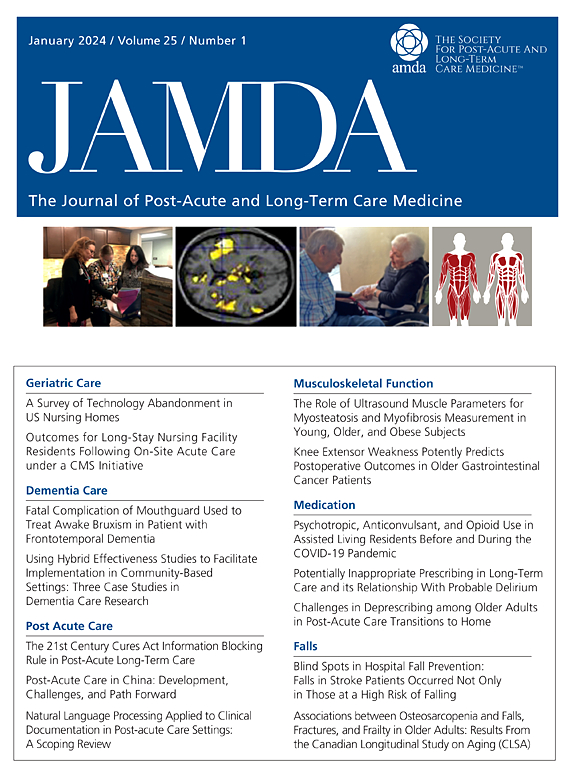Care Needs and Self-Sufficiency Assessment of Home Care Clients
IF 4.2
2区 医学
Q2 GERIATRICS & GERONTOLOGY
Journal of the American Medical Directors Association
Pub Date : 2025-04-09
DOI:10.1016/j.jamda.2025.105572
引用次数: 0
Abstract
Objectives
Assessing the changing care needs of home care clients is challenging due to the increasing multimorbidity and heterogeneity of geriatric syndromes, including frailty, functional decline, and cognitive impairment. We described the correlation between subjective judgment of changes in self-sufficiency and measured changes in health status.
Design
Retrospective cohort study.
Setting and Participants
A total of 70,369 home care clients aged ≥65 years dwelling in a private residence in Ontario, Canada, with 2 interRAI Home Care assessments conducted between July 2021 and December 2023 were included.
Methods
We compared assessor-judged changes to self-sufficiency with changes in functioning, personal support and health service needs, cognition, health instability, and pain between the first and second assessments using validated outcome scales and algorithms derived from the interRAI Home Care. We used contingency tables to assess whether any change in outcome scales was consistent with self-sufficiency. We used matched-pairs rank-biserial correlation to compute effect sizes of the magnitude of change in outcome scales within each assessor-judged stratum. We conducted a sensitivity analysis, stratifying the cohort into assessments completed within and after 6 months.
Results
A total of 50.6% of clients were judged by an assessor as having deteriorated in self-sufficiency over the last 90 days. Assessor-judged changes in self-sufficiency were associated with personal support and care needs, health instability, and activities of daily living performance. Worsened self-sufficiency was less associated with pain, whereas improved self-sufficiency was weakly associated with improved cognition.
Conclusions and Implications
Assessor-judged changes in self-sufficiency strongly correlate with changes in health status and care needs. Subjective clinician summaries of health changes show validity in modifying care plans.
求助全文
约1分钟内获得全文
求助全文
来源期刊
CiteScore
11.10
自引率
6.60%
发文量
472
审稿时长
44 days
期刊介绍:
JAMDA, the official journal of AMDA - The Society for Post-Acute and Long-Term Care Medicine, is a leading peer-reviewed publication that offers practical information and research geared towards healthcare professionals in the post-acute and long-term care fields. It is also a valuable resource for policy-makers, organizational leaders, educators, and advocates.
The journal provides essential information for various healthcare professionals such as medical directors, attending physicians, nurses, consultant pharmacists, geriatric psychiatrists, nurse practitioners, physician assistants, physical and occupational therapists, social workers, and others involved in providing, overseeing, and promoting quality

 求助内容:
求助内容: 应助结果提醒方式:
应助结果提醒方式:


